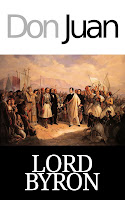By Gene Ogorodov
Nothing shows the hard work and impressive genius of Karl Marx as well as Theories of Surplus-Value. Every academic worthy of being called an academic is intimately familiar with the work and major hypotheses of their contemporaries and most influential predecessors, and economics is a field of study no less professional than any other academic field, but few economists have gone through the Sisyphean task of describing and deconstructing every idea in the field. That is what Marx does in Theories of Surplus-Value. Only Marx, Schumpeter, and Wolff and Resnick have presented what may be truly called detailed comparisons of economic theories and theorists. However, Theories of Surplus-Value also gives an excellently detailed picture of the underlying logic behind Marxian Economics. Alongside Capital and the Grundrisse, Theories of Surplus-Value ranks as one of the most essential economic works of Karl Marx and the Marxian Tradition.
Nothing shows the hard work and impressive genius of Karl Marx as well as Theories of Surplus-Value. Every academic worthy of being called an academic is intimately familiar with the work and major hypotheses of their contemporaries and most influential predecessors, and economics is a field of study no less professional than any other academic field, but few economists have gone through the Sisyphean task of describing and deconstructing every idea in the field. That is what Marx does in Theories of Surplus-Value. Only Marx, Schumpeter, and Wolff and Resnick have presented what may be truly called detailed comparisons of economic theories and theorists. However, Theories of Surplus-Value also gives an excellently detailed picture of the underlying logic behind Marxian Economics. Alongside Capital and the Grundrisse, Theories of Surplus-Value ranks as one of the most essential economic works of Karl Marx and the Marxian Tradition.





